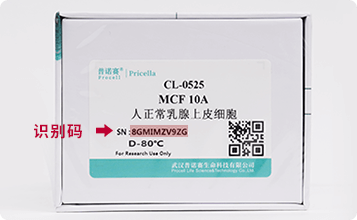MIP-1α/CCL3 (N-6His), Mouse, Recombinant
英文名稱:MIP-1α/CCL3 (N-6His), Mouse, Recombinant
貨號: PCK231
價格: ¥12880 ¥3480 ¥1180 ¥18880
規(guī)格:
500μg
50μg
10μg
1mg
產(chǎn)品信息
| 產(chǎn)品形態(tài) | 粉末 |
| 產(chǎn)品規(guī)格 | 500μg / 50μg / 10μg / 1mg |
| 別名 | C-C Motif Chemokine 3;Heparin-binding chemotaxis Protein;Macrophage inflammatory Protein 1-alpha;MIP1-a;Chemokine (C-C Motif) Ligand 3;LD78a;LD78 alpha;MIP-1 alpha;Scya3 |
| 物種 | 小鼠 |
| 表達宿主 | E.coli |
| 序列信息 | Ala24-Ala92 |
| 檢索號 | P10855 |
| 分子量 | 10.8 kDa |
| 表觀分子量 | 15 kDa |
| 標簽 | N-6His |
| 純度 | > 95% as determined by reducing SDS-PAGE. |
| 內(nèi)毒素 | < 1.0 EU per 1 μg as determined by LAL test. |
| 儲存條件 | Lyophilized protein should be stored at -5~-20℃, stable for one year after receipt. Reconstituted protein solution can be stored at 2-8℃ for 2-7 days. Aliquots of reconstituted samples are stable at -5~-20℃ for 3 months. |
| 運輸條件 | Ambient temperature or ice pack. |
| 有效期 | 12個月 |
| 制劑 | Lyophilized from a 0.2 μm filtered solution of 20 mM Tris-HCl, 150 mM NaCl, 5% Trehalose, 1 mM EDTA, pH 8.0. |
| 復(fù)融 | Always centrifuge tubes before opening. Do not mix by vortex or pipetting. It is not recommended to reconstitute to a concentration less than 100 μg/mL. Dissolve the lyophilized protein in distilled water. Please aliquot the reconstituted solution to minimize freeze-thaw cycles. |
| 背景介紹 | C-C Motif Chemokine 3 (MIP-1 alpha, CCL3) is a member of the beta or CC subfamily of Chemokines and is closely related to CCL4/MIP-1 beta. CCL3 expression can be induced in a variety of hematopoietic cells, fibroblasts, smooth muscle cells, and epithelial cells. Mature mouse CCL3 shares 73%, 91%, and 82% amino acid sequence identity with human, rat, and cotton rat CCL3, respectively. CCL3 exerts its biological functions through interactions with CCR1, CCR3, and CCR5. It is cleared from the extracellular space by internalization via the decoy Chemokine Receptor D6. CCL3 promotes the chemoattraction, adhesion to activated vascular endothelium, and cellular activation of many hematopoietic cell types including activated T cells, NK cells, neutrophils, monocytes, immature dendritic cells, and eosinophils. CCL3 is also known as stem cell inhibitor (SCI) and can inhibit the proliferation of hematopoietic progenitor cells. CCL3 bioactivity contributes to tumor metastasis and the inflammatory components of viral infection, rheumatoid arthritis, and hepatitis, although it also can suppress the replication of HIV. |

識別碼示意圖
技術(shù)資源
聯(lián)系我們
400-999-2100
24小時服務(wù)熱線
sales@procell.com.cn
銷售郵箱
×
![]()




